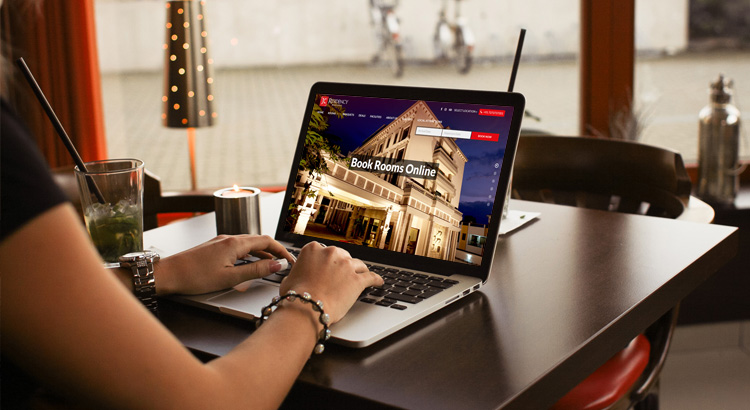It is an unfortunate truth that we take the internet for granted. After all, we have all the information in the world at our fingertips, and we rarely appreciate it. And neither do we make the most of it. Here’s an example: when someone hears about your hotel for the first time, the first thing that they’re going to do is Google it. So it’s up to you to capitalize on this opportunity to make a brilliant first impression, which most hotel owners are not able to do. Create a truly fantastic hotel website, and you’ll never look back. Why is the first impression crucial? Because human beings are rather irrational creatures, it’s sad but true. Here are 10 of the most essential features that every hotel website needs to incorporate.
1. Keep it updated with property images
If the website looks a little dated, they’ll reason that so is your hotel. That’s why you should use loads of big, gorgeous pictures, right on your homepage as well as throughout your site. That’ll imply to visitors that you have a roomy hotel that is truly worth showing off.
2. Accessibility matters
If the website loads slowly, then chances are that they’ll figure that that’s what your team is like as well. On the other hand, if you have lots of great website content which is both informative and sounds friendly, they’ll decide that your hotel is professionally run as well.
3. Responsiveness, it’s a pre-requisite
Remember that most of your customers will be accessing your website from a mobile device. Therefore, your hotel website’s features should prioritize on mobile support, and all features should be compatible with most mobile devices. This will show visitors that customer experience is important to your team.
4. Plan your informative content
During the process of hotel website development, you need to figure out how to give your customers exactly what they need. Focus on what they will require, and how you can make those needs easier to fulfill. Therefore, in-room services, food, transportation facilities, facilities for children, cost, and ease of payment all become major factors. Make sure your website categorically addresses these vital information aspects.
5. Online reservations
Integrating online reservations based on booking calendars and using integrated payment gateways is not expensive at all. One of the things that will need the most amount of consideration is online reservation. Having a own online booking system or integrating a booking engine will help both the guest and the hotel to ease out the process of booking. The online booking button should be clearly visible, and the online booking process simple.
6. Navigation, a key UI ingredient
Ensure that your hotel website does not overwhelm the user, and that too without compromising on info richness. So, plan the menu structure, responsive landing page, galleries, and sidebars with due diligence, to ensure a navigable website.
7. Build internal links to prolong user time on website
Simply having a hotel website is not enough. If the visitor in question cannot find the specific information that they are looking for, they will go elsewhere, and you will lose a customer. Concentrate on link building between pages for optimum conversion. Show other facilities of your hotel and services offered wherever possible to make the website visitor look for other pages.
8. Give a sense of security
Security and confidence is something that needs to be given a great deal of stress. Through the presentation and the content, you need to show prospective visitors that you are giving them a product that they can trust. Be convincing, and they will be convinced. Use security seals and certificates, so that users don’t mind paying online.
9. Focus on CTAs, action buttons
Make things as easy as possible. When users look around your website, they’re not doing it for fun, and they don’t want having to work for the information. Make your action buttons like “Book Now” or “Reserve” prominent.
10. Update Latest offers, Events & Testimonials
Once your website is actually up and running, don’t keep it static. Keep on updating the website with latest offers, upcoming events and news. Constantly add the testimonials provided by your guests in appropriate sections.
